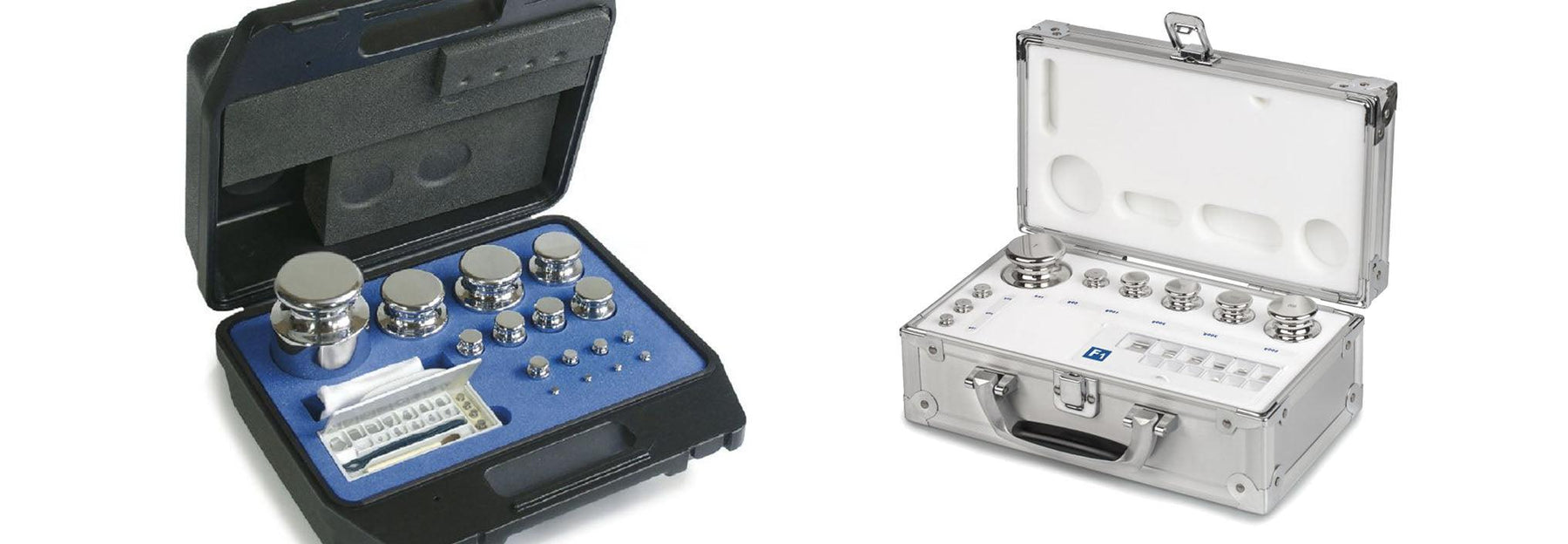
The Care and Keeping of Calibration Weights
Calibration weights are essential for any scale or balance that requires external calibration. They are used to give the scale or balance a reference point for specific weights, such as 1 kilogram, to guarantee that the scale or balance is providing you with accurate results every time you weigh something.
It is very important to take care of your calibration weights so that your scale can continue to provide accurate results. In this blog post, we have some useful tips on looking after your calibration weights.
Traceability
If you need your calibration weights to be traceable, you can get them certified by sending them to a facility, such as NIST, ASTM, or OIML, to be tested against weights that are considered a master set. This means that you will have verification that your weights are faultless and exact.
Handling and Cleaning
Use gloves or tweezers when handling so that your weights stay pristine. Even a little bit of dirt, lint, or the oil from fingerprints can add a minute amount of weight that will affect your results, especially on highly sensitive balances. Even worse, that oil may corrode the weight over time, ruining the weight for good.
If you notice any dirt or fingerprints, it is possible to clean the weight using a soft brush, without any type of cleaner or soap. Do not touch the bristles with your bare hands so that you don’t transfer the oils from your fingers. After cleaning your weight, let the weight rest to get rid of any potential static charge from the brush. Make sure to cleanse the brush as well.
When placing or lifting your weights on the balance, take care so they are not dragged against the plate, which may cause scratches.
Temperature
Calibration weights are usually made from stainless steel, or aluminium for lighter weights, both of which can contract or expand based on its temperature. Confirm that both your calibration weights and balance are at room temperature so that there is no risk of erroneous results.
Storage
Once you have calibrated your balance, store them carefully in a protectively lined case that is made specifically for this purpose. The case will ensure that the weights do not touch each other during transport. Inspect the case for any particles that may stick and cause calibration errors the next time you need them. Keep this case in a cool, dry place, where there will be no vibrations.
Buying Calibration Weights
You can order calibration weights from Inscale. If you need help with choosing the right weights for your scale or balance, speak to our team on 01908 972 660, or read this blog post: What Calibration Weights Do I Need?

Leave a comment